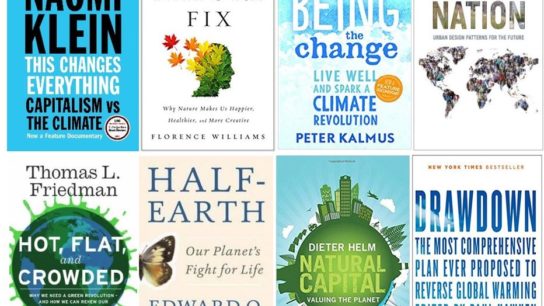Vertical farming is a modern farming technology that uses environmentally controlled agricultural technology to make the most of indoor farming techniques and many describe it as “future farming”. This is especially true given that by 2050, a major portion of the world’s population will have moved to cities. In such a setting and with an ever-expanding population, the desire for local food that is both organic and natural will grow, too. Here are 7 vertical farming companies that are paving the way for an agricultural revolution.
—
Why Do We Need Vertical Farming?
Vertical farming is an innovative agricultural practice that has the potential of solving the impending food crisis. Instead of growing our crops horizontally, produce is grown in stacked vertical layers. By doing so, crops require less or even no soil at all, and water efficiency is increased at the same time. Vertical farming can guarantee regular produce output and boost crop yields based on its controlled environment including temperature, light, humidity, and artificial intelligence.
This green technology can easily be built into buildings, cities and even shipping containers. It can also produce food closer to its consumers, reducing transportation costs and emissions.
Yet, vertical farming is still a relatively new technology. Maintenance costs of automation and watering processes are sky high, and most farms are limited to leafy greens, salad leaves and herbs based on these costs. Here are some vertical farming companies that are leading the way and helping the sector to expand globally.
You Might Also Like: Ways in Which Vertical Farming Can Benefit Our Environment
Top 7 Vertical Farming Companies
1. Futurae Farms (US)
Yaheya Heikal and Erin James – co-founders of Futurae Farms, a vertical farming company founded in 2021 and based in Los Angeles – are on a mission to find solutions to some of the world’s biggest problems through the use of urban vertical farms. These farms will bring more nutritious and sustainably made fresh foods to people around the world (mainly in urban centres) while helping lower global emissions. After traveling abroad and experiencing first hand the difference in quality of grown vegetables outside the US, Yaheya and Erin saw and tasted the difference in food that had less time from farm to table. The next-generation farming and technology company is now working to create food that is more accessible and nutritious, without sacrificing the environment. “We’re using vertical farms to reduce supply chain issues and mitigate the effects of climate change while ensuring we can feed future generations.” – the founders said. “Climate change is increasingly affecting our ability to produce food using traditional farming methods due to events including flooding, warming climate, wildfires, soil degradation, and desertification. We need to find large-scale alternatives to help supplement food supply.”
2. CubicFarms (Canada)
The origin of the company dates back to 2008, when Jack Benne and his son Leo Benne, both farmers, committed to developing indoor growing technologies to grow fresh produce while minimising their impact on the environment. One such technology is the HydroGreen Grow System, which can grow up to 25 million pounds (11.3 million kilogrammes) of fresh livestock feed every year using just one-tenth of the water needed in traditional livestock feed grown in irrigated fields. This way, they managed to save over 500 million gallons (1.8 billion litres) of fresh water per year – enough to give one glass to every person on the planet. The Canadian company also uses 54% to 62% less energy than typical vertical farms by moving plants according to the light rather than having dedicated lights for each one.
3. AeroFarms (United Arab Emirates)
Since 2004, AeroFarms implements the latest breakthroughs in indoor vertical farming, artificial intelligence and plant biology to fix our broken food system and improve the way fresh produce is grown and distributed locally and globally. As a sector leader and owner of the world’s largest vertical farm for research and development – located in the Abu Dhabi and completed in the first quarter of 2022, AeroFarms was awarded the inaugural Global SDG Awards celebrating private-sector leadership in the advancement of the United Nations 2030 Agenda. The company partnered up – among others – with US retail giants Whole Foods and Walmart to sell its leafy greens, from baby bok choy and arugula to spinach and micro broccoli.
4. InFarm (Germany)
Founded in Berlin in 2013 by Osnat Michaeli and the brothers Erez and Guy Galonska, InFarm is one of the largest vertical farming companies in Europe. The company uses an innovative technique known as cloud farming – a network of high capacity, self-learning growing centres that improve plant yield, taste, and nutritional value constantly, while further reducing the use of natural resources. With over 1,200 farms in stores and distribution centres, InFarm has partnered with more than 30 major food retailers including German Aldi Süd, Kaufland, and Edeka as well as Amazon Fresh, Marks & Spencer, and Whole Foods Market in Canada, Denmark, France, Germany, Japan, Luxembourg, the Netherlands, the United Kingdom, the United States and Switzerland.
5. Spread (Japan)
One of Asia’s leading vertical farming companies is Spread. Established in 2006 with the vision of “creating a sustainable society where future generations can attain peace of mind”, Spread is commitment to facilitate the mutually beneficial coexistence between conventional agriculture and local communities while reducing food waste and improving productivity. The company is known for its crispy and soft lettuce as well as its sweet strawberries, both of which are sold in more than 4,500 grocery stores across Japan. The innovative vertical farming technique implemented by the company ensures high quality and yield year-round, regardless of weather conditions. Moreover, this method only requires 1% of the water needed to grow food with conventional farming techniques and 30% less food is lost during production.
6. Farm66 (Hong Kong)
Sixth on our list of vertical farming companies is Farm66, one of Hong Kong’s largest state-of-the-art indoor aquaponics farms and in 2016, it was awarded the Technological Achievement Certificate of Merit (HKAI). Since its establishment in 2013, the company has been developing and practising the concept of urban farming. Inside its indoor aquaponics farming eco-system, free of weather impact, birds’ problems, pests and bacteria and huge space requirements, Farm66 grows products such as leafy greens, herbs (basil, dill) and fruits. These are then sold by many local retailers including CitySuper Hong Kong, SOGO and Pacific Coffee. Given its limited space and extremely dense population, Hong Kong is almost totally dependent on imports for its food supply. “Vertical farming is a good solution because vegetables can be planted in cities,” said Gordon Tam – co-founder and CEO – in an interview with Forbes. “We can grow vegetables ourselves so that we don’t have to rely on imports.”
7. iFarm (Finland)
Last but not least on our list of vertical farming companies is the award-winning iFarm, founded in 2017 in Helsinki, Finland. Vertical farms built with the iFarm technology use 90% less water, 75% less fertilisers and zero pesticides. They also save huge amounts of energy by optimising technology and reducing the ‘human factor’ and labor costs. All this allows to grow crops in a sustainable and economic manner all year round. iFarm products, such as leafy greens and different types of vegetables but also fruit such as strawberries, are sold worldwide, from Switzerland and France to Saudi Arabia and India. In 2019, the company was awarded the “Best Social Impact Startup” in Nordic Startup Awards and in 2020, it was named Europe’s Hottest AgFood Tech startup by The Europas.
Research for this article was conducted by Earth.Org research contributor Chloe Lam
You Might Also Like: 10 Leading Sustainable Food Companies to Support


















